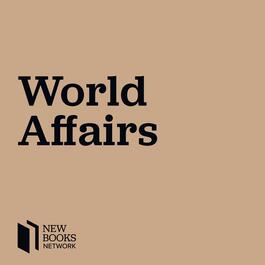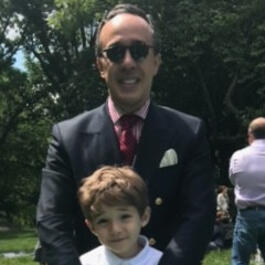
New Books in World Affairs
This podcast is a channel on the New Books Network. The New Books Network is an academic audio library dedicated to public education. In each episode you will hear scholars discuss their recently published research with another expert in their field. Discover our 150+ channels and browse our 28,000+ episodes on our website: newbooksnetwork.com Subscribe to our free weekly Substack newsletter to get informative, engaging content straight to your inbox: https://newbooksnetwork.substack.com/ Follow us on Instagram and Bluesky to learn about more our latest interviews: @newbooksnetwork Support our show by becoming a premium member! https://newbooksnetwork.supportingcast.fm/world-affairs
Show episodes
Since 2014 more than 32,000 people have died trying to cross the Mediterranean to reach Europe. As the EU and its member states have been increasingly prioritising migration deterrence over human life, civic organisations have stepped in and are carrying out search and rescue operations. SOS Humanity is one of these or
What happens when America loses its foreign-policy playbook? RBI acting director Eli Karetny talks with veteran diplomat and policy strategist Joel Rubin about the vacuum of strategic vision shaping U.S. decisions from Venezuela to Ukraine to Gaza. Rubin pulls back the curtain on factional battles inside both parties,
Transcript of the interview Minna Salami is a writer, social critic, and thought leader on feminism, knowledge production, and the aesthetics and structures of power. She formerly served as Programme Chair and Senior Fellow at THE NEW INSTITUTE, where she led the Black Feminism and the Polycrisis programme. Her work si

Carl Benedikt Frey, "How Progress Ends: Technology, Innovation, and the Fate of Nations" (Princeton UP, 2025)
In How Progress Ends: Technology, Innovation, and the Fate of Nations (Princeton University Press, 2025), Carl Benedikt Frey challenges the conventional belief that economic and technological progress is inevitable. For most of human history, stagnation was the norm, and even today progress and prosperity in the world'
Conflict Resolution Beyond the International Relations Paradigm: Evolving Designs as a Transformative Practice in Nagorno-Karabakh and Syria (Ibidem Press, 2017) holds the promise of freeing approaches and policies with regard to politics of identity from the fatalistic grip of realism. While the conceptual literature

Lisa Vanhala, "Governing the End: The Making of Climate Change Loss and Damage" (U Chicago Press, 2025)
A searing account of how the international community is trying—and failing—to address the worst effects of climate change and the differential burdens borne by rich and poor countries. Climate change is increasingly accepted as a global emergency creating irrevocable losses for the planet. Yet, each country experiences





